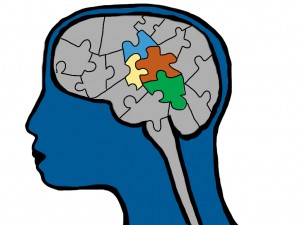WhoseBrainIsIt.com
Presented within the flow of the lives of real people and fictional characters, this is a monthly exploration of how some parts of the brain work.
~~~~~~~~~~~~~~~~~~~~~~~~~~~~~~~~~~~~~~~~~~~~~~~~~~~~~~~~~~~~~~~~~~~~~~~~~~~~~~~~~
Fishing for IQ
Topic: Food
Region: All brain regions
Fiona is getting a craving for fish. She thinks about how her mother used to tell her to eat more fish because fish sharpens your intellect. “The Japanese eat a lot of fish,” she would say, as if that somehow proved a correlation. It was only later that scientists found a connection between eating fish and having a healthy heart. But a better brain? She laughs and wonders if the Japanese have a healthier heart, and maybe her mom should have told her about that instead.
Fish contains a high level of omega-3 fatty acids. Various studies conducted on rats have correlated omega-3 intake with improvements in learning and memory. Thus, Fiona’s mother might be right. The body cannot make its own omega-3, so this fatty acid must be provided via food and fish is one of the best sources.
Fiona plans her dinner for the night: curried tilapia, garlic spinach, brown rice. As she waits for the tilapia to finish cooking, she pops some anchovies into her mouth. The tilapia and anchovies will provide omega-3, but tilapia only provides 150mg per ounce as opposed to the anchovies which provide a whopping 2300-2,400 mg per ounce.
Her best friend is East-Indian and says that turmeric is good for the brain. Fiona has read about studies which show that curcumin from turmeric can help prevent neurological decline related to Alzheimer’s. She likes turmeric and other Indian spices, so she is happy to use them to make her meals tastier. The folic acid in her spinach may also reduce age related cognitive decline. The folate studies conducted on humans are inconclusive and require further research.
As Fiona waits for her dinner to finish cooking, she looks in her refrigerator for something to drink. There’s milk and orange juice, but neither is a good accompaniment for fish. She makes a hot cup of green tea instead. If she had chosen milk, she would have opted for Vitamin D which is good for the brain, but she can get this from simply walking around outside when the sun is out. The orange juice would have provided flavonoids, which are good for the brain, but she is still getting this from the green tea.
It is not easy to make food choices that provide optimum benefits. Even thought Fiona’s fish is providing essential nutrients for brain and body, the selenium found in fish can cause mental decline. Moreover, many fish contain mercury, which is a known neurotoxin. The brown rice that Fiona is eating is great for fiber and other nutrients, but it is also a source of zinc, too much of which can cause cognitive impairment.
Fiona does not know the science of how her dinner will impact her brain. Thus, she might have trouble balancing the positive and negative food intake in order to maximize the food nutrients. With the influx of information currently available to consumers of popular media, some of it contradictory, it’s difficult to make a decision as to what is really healthy or not. As with many areas of neuroscience, the study of the affect of food on the brain is in its infancy.
The lessons learned from ancestors, directly through our parents or through the larger cultures, are probably helpful in making food decisions. After all, the advice being passed down is based on hands-on experience of generations. But if Fiona simply follows the advice given to her by her mother and best-friend and ignores new research, she will not learn about the dangers of food and the important of balance. If she attempts to balance traditional knowledge with scientific findings, she will give more consideration to her nutritional intake and potentially improve her brain health.
______________________________________________________________________________
This is a monthly column published in SynchChaos.com magazine. Leena Prasad has a writing portfolio at http://www.FishRidingABike.com. Links to earlier stories in her monthly column can be found at http://www.WhoseBrainIsIt.com.
Josh Buchanan, a UC Berkeley graduate, edits this column with an eye on grammar and scientific approach.
Dr. Nicola Wolfe is a neuroscience consultant for this column. She earned her Ph.D. in Clinical Psychopharmacology from Harvard University and has taught neuroscience courses for over 20 years at various universities.
References:
- Nature, Brain foods: the effects of nutrients on brain function, July 2008,
- Harvard Health Letter, Food for thought, May 2012


Hey! Someone in my Myspace group shared this site with us
so I came to look it over. I’m definitely enjoying the information. I’m bookmarking and will be tweeting this to my followers!
Superb blog and excellent design.
I do not know if it’s just me or if everyone else experiencing problems with your website. It looks like some of the written text within your posts are running off the screen. Can somebody else please provide feedback and let me know if this is happening to them too? This could be a problem with my web browser because I’ve
had this happen previously. Many thanks
Hi Antony, this is Cristina, one of the site’s editors. I apologize for the display issues, we had a string of past problems, but are happy to correct them. Would you mind taking a look at Leena’s newer columns to see if you’re still experiencing the same display issues? That may give us a clue about how to address these issues. Thank you very much, and thank you also for reading the magazine. We hope to improve the experience of our site soon.